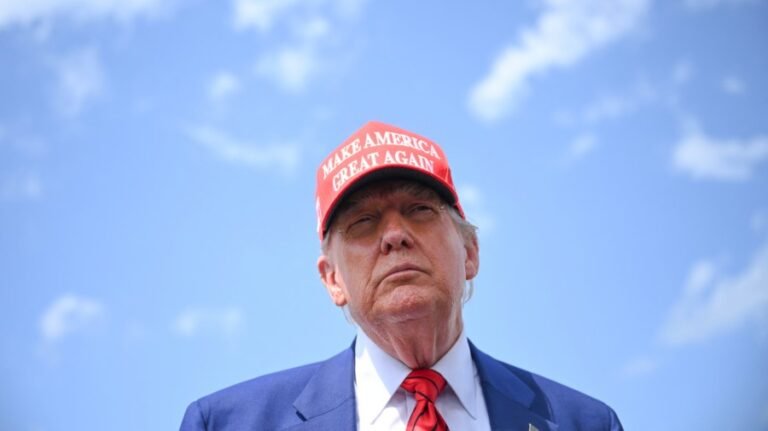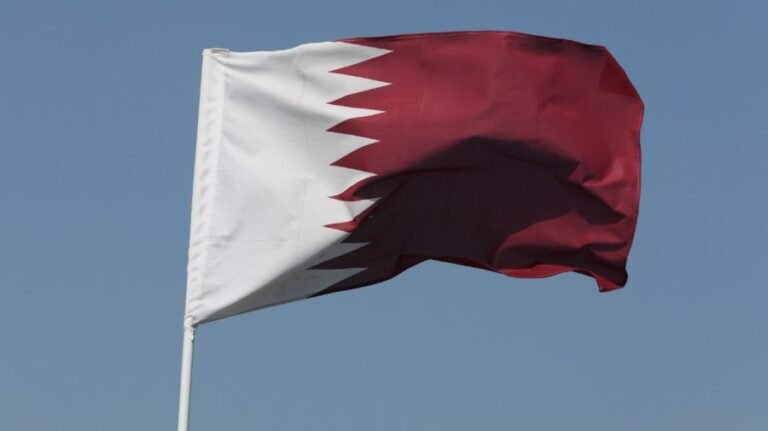
Israeli Prime Minister Benjamin Netanyahu has long thrived on regional fragmentation, most recently cutting normalization deals, known as the Abraham Accords, with Arab states while sidelining the Palestinian issue. But that strategy is collapsing.
In a historic miscalculation, Netanyahu’s refusal to allow Saudi Foreign Minister Prince Faisal bin Farhan and a delegation of Arab foreign ministers to visit the West Bank has provoked outrage and accelerated Arab unity behind the formal recognition of a Palestinian state.
To be clear, Hamas bears full responsibility for its brutal Oct. 7 terrorist attacks against Israel that ignited the Gaza War. Hamas’s continued rejection of U.S.-backed cease-fire proposals has prolonged the problem. At the same time, Netanyahu’s response — marked by the indiscriminate killing of civilians and disregard for international law — has further isolated Israel on the world stage.
Prince Faisal’s visit would have marked the first official Saudi stop in Palestinian territory since 1967. Coordinated by Saudi Arabia, Egypt, Jordan, Qatar, Turkey and the United Arab Emirates, the delegation aimed to meet Palestinian President Mahmoud Abbas in Ramallah and send a clear diplomatic message that the Palestinian cause is a central priority for the Arab and Muslim world. Instead, Netanyahu’s government denied the group entry, labeling the trip “provocative.”
The message received in the region was very different: Israeli leadership is so entrenched in its rejection of Palestinian statehood that it would rather slam doors on long-standing Arab allies such as Egypt and Jordan than allow symbolic gestures of solidarity. Palestinian officials called the move dangerous and unprecedented. Countries like the UAE — recently aligned with Netanyahu under the Abraham Accords — joined the delegation, underscoring a notable shift in Arab consensus.
This is not an isolated diplomatic fallout. It’s a turning point — and Saudi Arabia is leading the change. Crown Prince Mohammed bin Salman embodies the heart and pulse of the Middle East. His government, once rumored to be nearing normalization with Israel, has taken a firm stance: no recognition without Palestinian statehood.
Not only did the prince push the blocked West Bank visit, but Saudi Arabia is now co-chairing a high-level international conference with France in June to revive the two-state solution.
This French-Saudi coordination is not merely symbolic — it reflects the emergence of a serious diplomatic front pushing for global recognition of Palestine. French President Emmanuel Macron has called such recognition both a moral duty and a political necessity. The upcoming summit, supported by Arab League consensus and broader international momentum, could see a growing number of countries moving in that direction. Recent recognitions of Palestine by Norway, Spain and Ireland may be just the beginning.
The Arab world has come full circle. Where once there was hesitancy, fragmentation and quiet diplomacy, now there is relative cohesion and conviction. The Palestinian issue is back at the forefront — not because of an intifada or pressure from Western capitals, but because of regional realignment rooted in shared values and strategic recalibration. Netanyahu, who once claimed victory in separating Israel’s relations with Arab states from the Palestinian question, now faces a wall of Arab opposition.
Across Arab capitals, young people are increasingly vocal and engaged. They see the horrific images from Gaza in real time. Their identification with the Palestinian cause is not inherited but lived. Their message to governments is clear: Enough symbolism, take action.
Bin Salman has made clear that normalization with Israel is off the table without meaningful progress on Palestinian statehood. The Saudi calculus is realistic and strategic: Long-term regional stability depends on resolving the Palestinian question, not ignoring it.
This realignment is reshaping the global conversation, and Washington must take note. In this new era, Arab states are not waiting for U.S. mediation or Israeli approval — they are leading with their own initiatives, backed by global partners. Whether the Trump administration supports these moves or not, the facts on the ground are shifting.
Netanyahu’s defiance is isolating Israel at a time when it needs allies. Refusing entry to foreign ministers attempting peaceful diplomacy doesn’t project strength — it reveals fear. And in the process, it is galvanizing exactly what Netanyahu sought to avoid.
A few years ago, the regional narrative focused on normalization. Today, it’s about liberation. The next few months will be critical. If the French-Saudi summit catalyzes broader international recognition of Palestine, Netanyahu’s strategy will be seen not as visionary but as the catalyst for a historic reversal.
Arab leaders are no longer divided or deferring. They are vocal, aligned and following bin Salman’s lead. The road to lasting peace runs through a two-state solution, which begins with recognition of a Palestinian state.
Israelis and Palestinians deserve peace and security, not endless conflict. The world should help deliver this.
David Ramadan, Ed.D. is a Lebanese-American who was elected and served in the Virginia House of Delegates. He is a professor of practice at the Schar School at George Mason University and a scholar at the Center for Politics at the University of Virginia.


